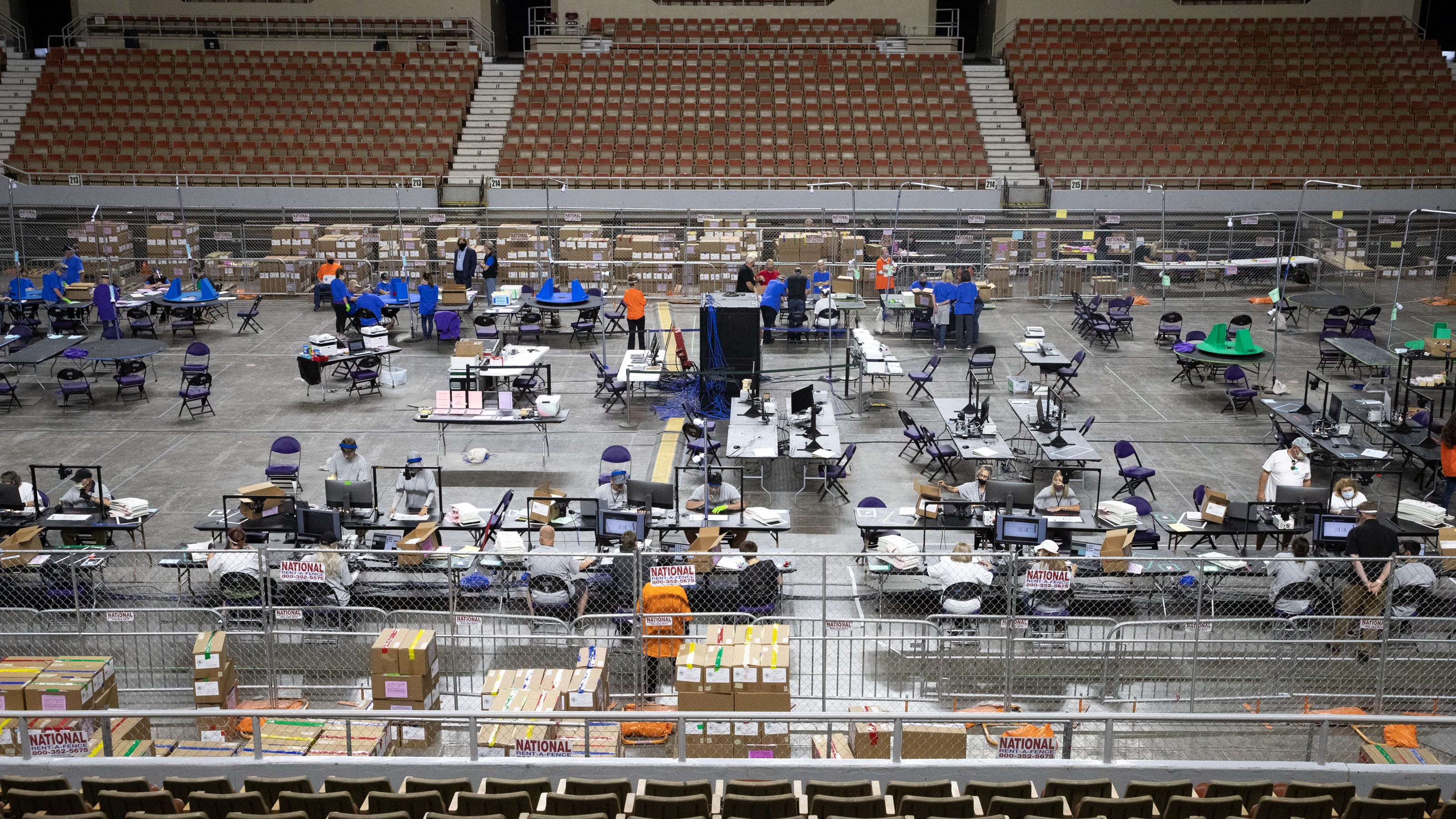printer
Well-Known Member
Mark Brnovich warns Justice Department against undermining Arizona election audit
Arizona Attorney General Mark Brnovich wants U.S. Attorney General Merrick Garland to take a hands-off approach to the state’s ongoing ballot review, similar to what he has done.
Brnovich, a Republican who is running for the U.S. Senate, announced Tuesday via his campaign that he had sent a letter to Garland on Monday. That letter accused Garland, the nation’s top law-enforcement officer, of showing “an alarming disdain for state sovereignty.”
Garland announced last week the Justice Department will scrutinize post-election audits to ensure they abide by federal requirements to protect election records and avoid intimidation of voters.
Garland seemed to criticize the Arizona review when he said some of the post-2020 election reviews are “based on disinformation” and said they used “abnormal post-election audit methodologies that may put the integrity of the voting process at risk and undermine public confidence in our democracy.”
In his letter, Brnovich cast as performative, not legally substantive, a previous letter from the U.S. Department of Justice’s Civil Rights Division that asked Senate President Karen Fann, R-Prescott, to respond to concerns the department had about security of ballots and potential voter intimidation.
“My office is not amused by the DOJ’s posturing and will not tolerate any effort to undermine or interfere with our State Senate’s audit to reassure Arizonans of the accuracy of our elections,” Brnovich wrote.
“We stand ready to defend federalism and state sovereignty against any partisan attacks or federal overreach. … Arizona will not sit back and let the Biden administration abuse its authority, refuse to uphold laws, or attempt to commandeer our state’s sovereignty.”
The hand count of the ballots was nearly complete. The ballot inspectors were still evaluating the paper ballots to determine if there were any irregularities.

Almost done!
Arizona Attorney General Mark Brnovich wants U.S. Attorney General Merrick Garland to take a hands-off approach to the state’s ongoing ballot review, similar to what he has done.
Brnovich, a Republican who is running for the U.S. Senate, announced Tuesday via his campaign that he had sent a letter to Garland on Monday. That letter accused Garland, the nation’s top law-enforcement officer, of showing “an alarming disdain for state sovereignty.”
Garland announced last week the Justice Department will scrutinize post-election audits to ensure they abide by federal requirements to protect election records and avoid intimidation of voters.
Garland seemed to criticize the Arizona review when he said some of the post-2020 election reviews are “based on disinformation” and said they used “abnormal post-election audit methodologies that may put the integrity of the voting process at risk and undermine public confidence in our democracy.”
In his letter, Brnovich cast as performative, not legally substantive, a previous letter from the U.S. Department of Justice’s Civil Rights Division that asked Senate President Karen Fann, R-Prescott, to respond to concerns the department had about security of ballots and potential voter intimidation.
“My office is not amused by the DOJ’s posturing and will not tolerate any effort to undermine or interfere with our State Senate’s audit to reassure Arizonans of the accuracy of our elections,” Brnovich wrote.
“We stand ready to defend federalism and state sovereignty against any partisan attacks or federal overreach. … Arizona will not sit back and let the Biden administration abuse its authority, refuse to uphold laws, or attempt to commandeer our state’s sovereignty.”
The hand count of the ballots was nearly complete. The ballot inspectors were still evaluating the paper ballots to determine if there were any irregularities.

Mark Brnovich warns Justice Department against undermining Arizona election audit
U.S. Attorney General Merrick Garland said the Justice Department will scrutinize post-election audits to ensure they abide by federal requirements.
www.azcentral.com
Almost done!




